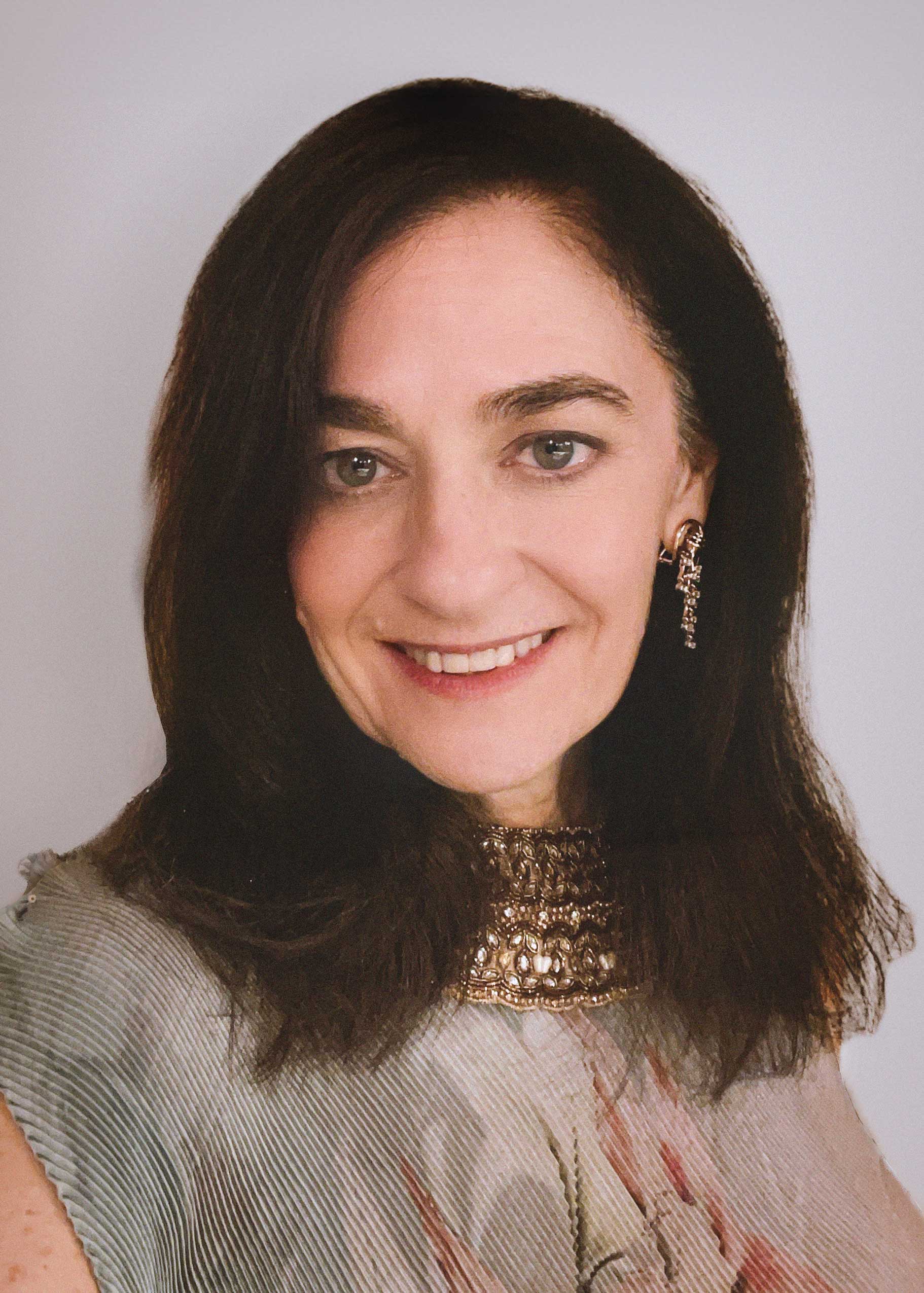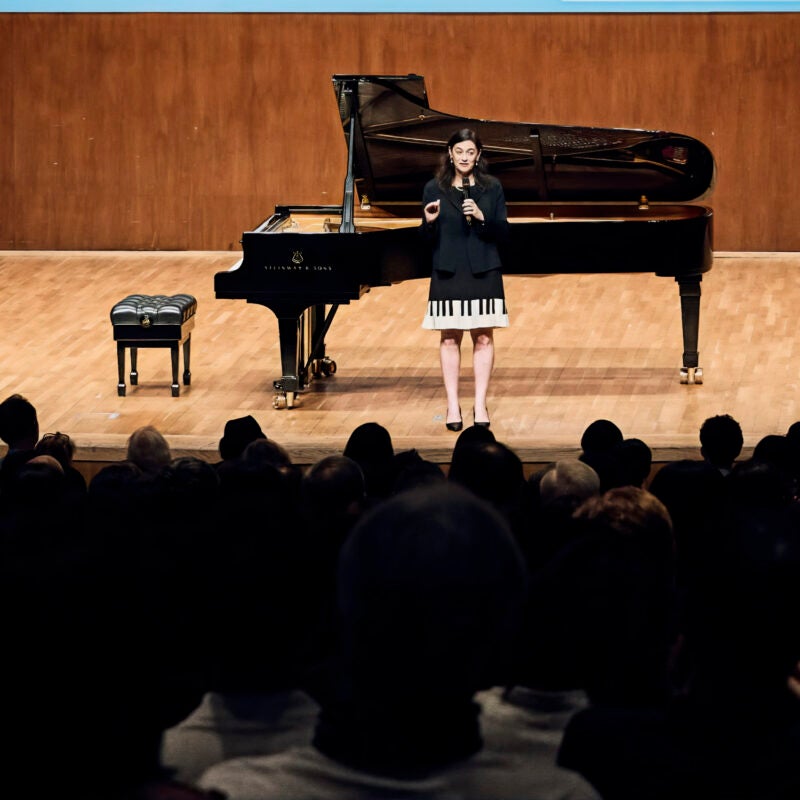A native of Vancouver, British Columbia, Andrea Fessler ’91 was raised by immigrant parents who trained as classical musicians — her mother as an opera singer and her father as a pianist. While neither pursued music professionally, she grew up surrounded by their love of the arts and live performance: “They took me to everything,” she recalls. “It was steeped into my childhood.”
Years later, when she was a first-year associate in New York at Cravath, Swaine & Moore, Fessler’s phone rang one night with a subscription offer to a piano recital series at Carnegie Hall. “I found that if I had tickets in advance, I would go,” she says. “That’s how I got to see Evgeny Kissin’s New York debut back in 1993.” When she transferred to Cravath’s London office in 1995, Fessler met her husband. The couple took full advantage of that city’s cultural offerings and continued to do so when job changes required moves to Tokyo and, finally, Hong Kong, in 2004.
Premiere Perfomances brings music to some 30,000 people annually.
There was much to love about life in Hong Kong, Fessler says, but it lacked a robust, high-quality classical music scene. She was working as in-house counsel for Cabot Corp. when a co-worker recommended the book “The Monk Who Sold His Ferrari” by Robin Sharma. “One of the chapters was about living a purpose-filled life, and that really stuck with me,” Fessler says. Around the same time, she looked up an organization from her childhood, the Vancouver Recital Society, which was still in operation with the same executive director at the helm. “That planted a seed in my mind that somebody should start its equivalent in Hong Kong,” she says. “Then I suddenly had an epiphany: Why don’t I start it?”

Fessler took the plunge, traveling to meet artist managers in New York, London, and Berlin. In fall 2007, Premiere Performances of Hong Kong launched with a Rising Stars piano series. Just after her first recital series, Fessler began working four days a week as in-house counsel at Star TV. In 2009, James Murdoch, then in charge of News Corp in Asia, Star’s parent company, decided to restructure its Asian broadcasting business. As a result, she lost her job. With grant-writing, fundraising, and planning for a chamber music festival well underway, she decided to focus full time on Premiere Performances. “And then I never looked back,” says Fessler. “I didn’t have the courage to walk away, but I lost my job at a very convenient point in time.”
Fessler is excited to see the nonprofit expand its offerings as it launches a jazz series in collaboration with Lincoln Center. Today, it reaches some 30,000 people annually through more than 100 events a year. In addition to its concert series, the organization offers family and community events and an established in-school education program that provides 60 to 80 school concerts every year. “According to our surveys, about one-third of the children have never seen a live performance before — and those who do play an instrument are more joyful and motivated to practice after seeing how much fun it can be to play for others,” she says.
Founding and serving as executive director of an established arts organization is not a career path Fessler ever imagined for herself, but she says there’s a certain logic to it, even as it relates to her law school training. “When I started PPHK, I had no experience in arts administration, marketing, or fundraising — I wasn’t even a musician myself,” she says. “But none of that was a deterrent, because working as a lawyer teaches you to be a creative problem-solver.” Fessler adds that the project management skills she developed as an international corporate lawyer were also extremely helpful in overseeing the many details involved in juggling a complex budget and full slate of performances and programs.
The challenges are worth it, too; Fessler has received notes of gratitude from audience members, as well as from young artists who launched their careers with Premiere Performances. During the pandemic, the organization managed to hold well-attended performances in a COVID-free zone, quarantining visiting musicians: “People discovered us and kept coming back,” says Fessler, who has seen an increase in ticket sales since the nonprofit’s brand gained visibility during that difficult time.
“Any live performance creates the space to transport the audience; it offers a phone-free mental health break,” adds Fessler. She is already looking ahead to celebrating the organization’s 20th anniversary in 2027.
